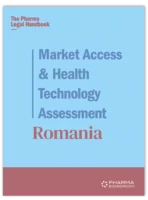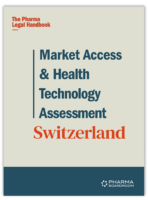Cannabinoid Drugs, Medicinal Cannabis and Opioid Drugs
Drew & Napier / Iraq
Cannabinoid Drugs
1. Are Cannabinoid Drugs authorized in your country?
In Iraq, Cannabinoid Drugs are generally not authorized due to strict drug control laws and cultural sensitivities around cannabis-related substances.
2. What are the regulatory authorities with jurisdiction over Cannabinoid Drugs?
The Ministry of Health and related drug regulatory bodies oversee drug control and authorization, including laws prohibiting cannabinoid drugs.
3. Is there a specific regulatory framework for the authorization, pricing, and reimbursement of Cannabinoid Drugs?
Given that Cannabinoid Drugs are not typically authorized, there is no specific framework for their authorization, pricing, or reimbursement.
4. Which are the cannabinoid drugs that have received market approval to date?
There are no known cannabinoid drugs with market approval in Iraq.
5. Who can prescribe Cannabinoid Drugs?
Since these drugs are generally not authorized, prescribing them is not permitted.
6. Is there a list of doctors authorized to prescribe Cannabinoid Drugs?
No, because Cannabinoid Drugs are not typically authorized for medical use in Iraq.
7. What approvals or notifications are required to prescribe Cannabinoid Drugs?
This is not applicable, as Cannabinoid Drugs are not authorized.
8. Which organizations are authorized to sell/distribute Cannabinoid Drugs available?
Organizations cannot legally sell or distribute Cannabinoid Drugs in Iraq.
9. Is there a list of retailers/distributors authorized to sell Cannabinoid Drugs?
There are no retailers in Iraq. Since these drugs are not authorized, there are no adopted distributors.
10. Are there proposals for reform or significant change to the regulation of Cannabinoid Drugs?
There are no significant proposals for changing regulations related to Cannabinoid Drugs in Iraq.
11. When are they likely to come into force?
This is not applicable due to the lack of authorization or reform proposals for Cannabinoid Drugs in Iraq.
Medicinal Cannabis
1. Is Medicinal Cannabis authorized in the country?
Medicinal Cannabis is not authorized in Iraq. Cannabis-related substances are generally illegal due to strict drug control laws.
2. What are the regulatory authorities with jurisdiction over Medicinal Cannabis?
The Ministry of Health and related regulatory bodies govern all drug-related laws, including those prohibiting cannabis.
3. What is the regulatory framework for the authorization, pricing, and reimbursement of Medicinal Cannabis?
Since Medicinal Cannabis is not authorized, there is no specific framework for its authorization, pricing, or reimbursement.
4. How is the production and import of Medicinal Cannabis regulated and by which agencies/authorities?
Production and import of Medicinal Cannabis are prohibited in Iraq.
5. What approval or notifications are necessary to produce or import Medicinal Cannabis?
This is not applicable due to the prohibition on Medicinal Cannabis production and import.
6. What is the regulatory framework for the marketing and distribution of Medicinal Cannabis?
Since Medicinal Cannabis is not allowed, there is no framework for marketing or distribution.
7. How can patients obtain Medicinal Cannabis?
Patients cannot legally obtain Medicinal Cannabis in Iraq.
8. Who can prescribe Medicinal Cannabis?
Since it is prohibited, no one is authorized to prescribe Medicinal Cannabis.
9. Is there a list of doctors authorized to prescribe Medicinal Cannabis?
There is no such list, as Medicinal Cannabis is not authorized.
10. What approvals or notifications are required to prescribe Medicinal Cannabis?
Approvals and notifications are not applicable because Medicinal Cannabis is not permitted.
11. Where is Medicinal Cannabis available?
Medicinal Cannabis is not legally available in Iraq.
12. Is there a list of retailers authorized to sell Medicinal Cannabis?
There are no authorized retailers for Medicinal Cannabis in Iraq.
13. Are there proposals for reform or significant change to the regulation of Medicinal Cannabis?
There are no significant proposals for reform regarding Medicinal Cannabis regulation.
Opioid Drugs
1. Are Opioid Drugs authorized in your country?
Yes, Opioid Drugs are authorized in Iraq for medical purposes but are tightly regulated.
2. What are the regulatory authorities with jurisdiction over Opioid Drugs?
The Ministry of Health and the relevant drug regulatory bodies oversee the authorization and control of Opioid Drugs.
3. Is there a specific regulatory framework for the authorization, pricing, and reimbursement of Opioid Drugs?
Yes, the regulatory framework for Opioid Drugs is governed by laws and regulations set by the Ministry of Health, which controls their authorization, pricing, and reimbursement.
4. Which are the Opioid Drugs that have received market approval to date?
Specific details on market-approved Opioid Drugs in Iraq can be obtained from the Ministry of Health. These typically include commonly used medical opioids like morphine, codeine, and fentanyl.
5. Who can prescribe Opioid Drugs?
Opioid Drugs can be prescribed by licensed medical professionals, such as doctors or specialists with the necessary authorization.
6. Is there a list of doctors authorized to prescribe Opioid Drugs?
While there’s no public list, doctors authorized to prescribe opioids must meet specific regulatory requirements and hold the necessary licenses.
7. What approvals or notifications are required to prescribe Opioid Drugs?
Prescribing Opioid Drugs requires proper medical licensing and compliance with Ministry of Health guidelines for prescribing controlled substances. Notifications to regulatory bodies might be required in some cases, especially for high-risk opioids or large quantities.
8. Which organizations are authorized to sell/distribute Opioid Drugs available?
Licensed pharmacies and medical facilities are authorized to sell/distribute Opioid Drugs, subject to strict regulatory control by the Ministry of Health.
9. Is there a list of retailers/distributors authorized to sell Opioid Drugs?
There are no retailers in Iraq. And there is no public list for the distributors, but authorized distributors must meet strict licensing and regulatory requirements.
10. Are there proposals for reform or significant change to the regulation of Opioid Drugs?
Proposals for reform often focus on strengthening regulations, improving drug monitoring systems, and reducing the risk of opioid misuse and abuse.
11. When are they likely to come into force?
The timeline for regulatory reforms related to Opioid Drugs varies and depends on government initiatives and legislative processes. Significant changes can take years to implement. However, any reform proposals aiming to enhance control over opioid use or improve safety could be influenced by ongoing international efforts to address the opioid crisis and drug misuse.


































































